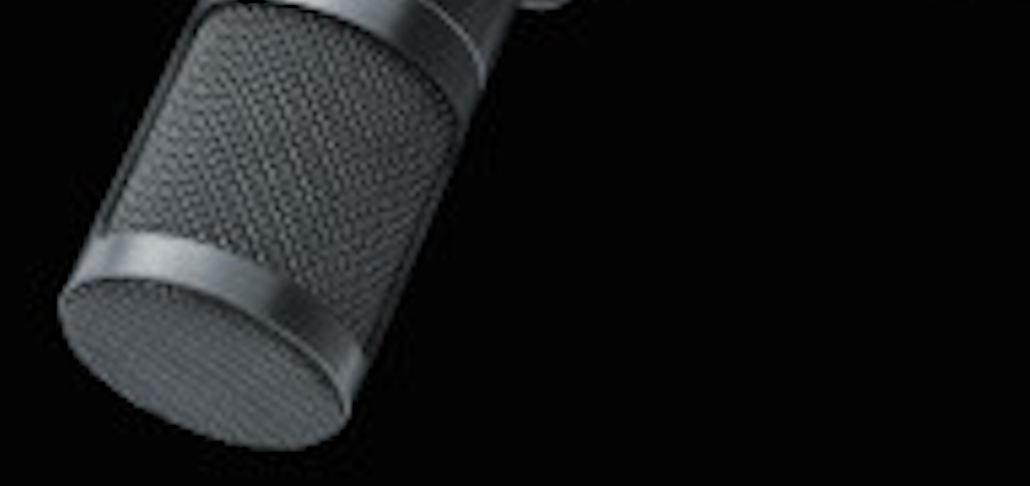Last chance to save on Digiday Publishing Summit passes is February 9

While WBEZ’s “Serial” elbowed its way into the national conversation last fall, Slate was quietly making some podcast news of its own.
While other media companies cut back their podcasts to focus on video, Slate added two new ones, “The Gist” and “Money,” for a total of 10. Last October, the online magazine had a record 6 million downloads, up from 1 million a month two years ago. Last fall, Slate attracted Acura as a sponsor, a coup for a medium that has long been dominated by direct-response advertisers.
“It’s nice to see a marquee brand, not a direct-response brand, taking the lead in podcasting,” Slate publisher Anthony DeMaio said of Acura.
Now, Slate is hoping to build on that growth with more live events around podcasts like its popular “Political Gabfest” with host David Plotz and “Hang Up And Listen,” its sports podcast. It also plans to leverage its 10 years of experience with the medium by creating a network with other, like-minded publishers.
Podcast listeners have some attractive characteristics. Those who do listen are heavy users of the medium: Podcasts account for 30 percent of their listening, more than all other audio sources, according to Edison Research. Slate contends its podcast audience, while smaller than its overall audience, over-indexes in a lot of the characteristics that are coveted by advertisers — they’re wealthier, more educated and more tech savvy than its average website visitor. For its live events, Slate has attracted 500 people paying $30 a ticket.
And at a time when advertisers are battling for consumer attention, podcasts are an intimate medium that require active listening with little room for distractions or interruptions, which is why DeMaio said Slate can charge $25 to $50 CPMs for podcasts, making them more comparable to TV rates than the couple of bucks that online banner rates go for. As the sponsor of five of Slate’s live events, Acura let attendees take a spin in its cars while waiting for the show to start. Jessica Fini, spokeswoman for Acura, said the podcasts’ audience match up with Acura’s target customer.
“For us, podcasting is not just another form of audio, but a means for advertisers to break through clutter and for people to give just a few
minutes of their day or week to connect on a more personal, meaningful level with media personalities and outlets they trust and are interested in,” she said.
The medium is still catching up in terms of measurement and scale, though. Podcasts’ share of all listening grew 18 percent in the past year and is poised to expand more with the rise of smartphone listening and connected cars. But podcasting still accounts for just 2 percent of all time spent audio listening, according to Edison Research. And measuring that audience requires counting a patchwork of downloads, plays and subscribers, often across a multitude of third-party apps.
“It’s a fragmented market,” said Jake Shapiro, CEO of PRX, which operates the Radiotopia podcast network. “There isn’t really the industry standard protocol for that kind of measurement and an authoritative entity that everyone would agree to use for a measurement. So there’s an imprecision, having everyone gather them for themselves.”
Slate has begun surveying its users to quantify their demographic and behavioral data for advertisers. And in pursuing a network, Slate is following in the footsteps of PRX and others that have discovered that — as in other media segments like YouTube video and multichannel networks — that approach can help producers manage the sponsorship sales, marketing and promotional aspects of podcasting.
“We’ve been doing podcasts the past decade,” DeMaio said. “We have an infrastructure. There’s the potential for working with more like-minded companies.”
Homepage image courtesy of Shutterstock.
More in Media

Brands invest in creators for reach as celebs fill the Big Game spots
The Super Bowl is no longer just about day-of posts or prime-time commercials, but the expanding creator ecosystem surrounding it.

WTF is the IAB’s AI Accountability for Publishers Act (and what happens next)?
The IAB introduced a draft bill to make AI companies pay for scraping publishers’ content. Here’s how it’ll differ from copyright law, and what comes next.

Media Briefing: A solid Q4 gives publishers breathing room as they build revenue beyond search
Q4 gave publishers a win — but as ad dollars return, AI-driven discovery shifts mean growth in 2026 will hinge on relevance, not reach.





